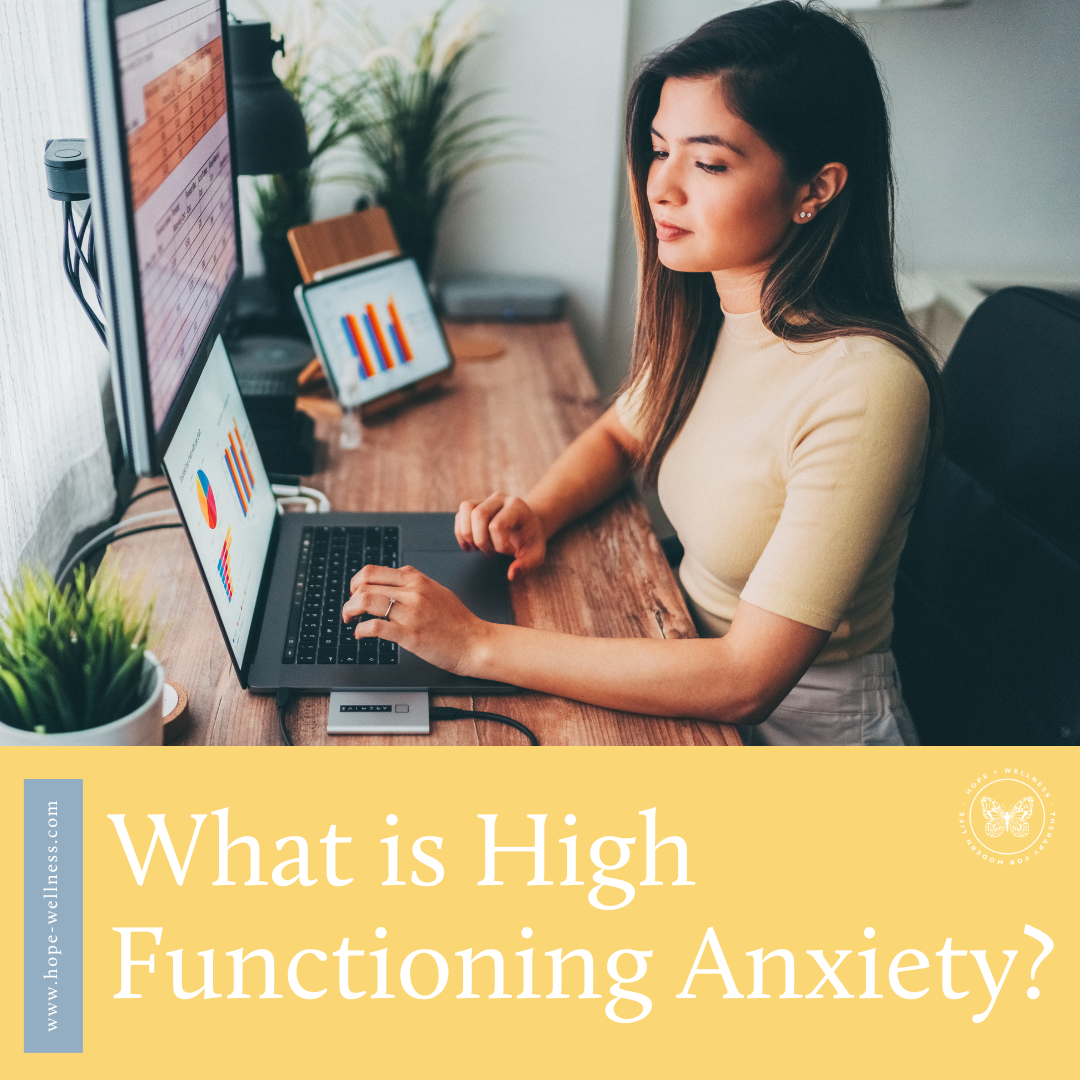
Hope +Wellness Blog
little snippets of advice for everyday challenges many people share

5 Strategies for Overcoming Social Anxiety at Holiday Gatherings
How can you make sure social anxiety doesn’t get in the way of enjoying events you attend during the holiday season? Here are 5 strategies for overcoming social anxiety at holiday gatherings.

Masking: What It Is and How It Shows Up
“Masking” is a term that refers to the process of suppressing your natural behaviors in order to blend in with those around you. It’s a self preservation technique for neurodivergent people, where they work to mimic the behaviors of neurotypical people around them in order to both fit in and avoid punishment for not blending in.

Dealing With Negative Emotions: 7 Blogs to read When You’re Feeling Something Uncomfortable
Dealing with distressing emotions in a healthy way takes practice. Learn where to start with these 7 posts about dealing with negative emotions.

4 Best Practices for Fact Checking #InstaTherapy Content
What can you do to vet how reliable a mental health resource is on social media?

How to Be Okay With Saying No
It can be hard to break out of a pattern where you feel like you can’t ever say no, even to honor your own boundaries. Here are some tips to help you feel comfortable and confident saying no.

I Hurt My Friend's Feelings, What Do I Do Now?
We can only avoid conflict by avoiding our true feelings in a relationship, so it’s not necessarily a sign that the relationship is a bad one. And hurting someone’s feelings doesn’t mean you’re a bad person. We’re all wounded and trying our best, and sometimes we misstep. Taking time to talk to you about their hurt feelings is a sign that your relationship means a lot to your friend or loved one, not the other way around.

Why is Making Friends as an Adult so Hard? + What to Do About It
Friendships become communities of support–communities which go against the American ideal of self sufficiency. Because they present this sort of counter-culture to the American way, we don’t put value onto platonic relationships the way we do with others and we don’t learn how to make, cultivate and sustain intimate them. So what can you do?

Strengthen Your Relationship with Your Body With These Six Blogs
Having a strong relationship to your body helps your health holistically. It helps you tune into your physical and your emotional needs, and tend to them consciously and intentionally. But getting there isn’t an easy journey and it can be hard to know where to start. These six blogs are our starting point for you if you’re looking to strengthen your relationship to your body.

What to Do When Life Feels Meaningless
What can you do when life feels meaningless? Remember, you’re not alone, and you won’t feel this way forever. Here are 6 suggestions for what you can do when life feels meaningless:

What is High Functioning Anxiety?
People who struggle with high functioning anxiety often find themselves motivated by their anxiety to achieve their goals and to appear perfect. Often, they struggle with extreme inner turmoil while on the outside they appear successful.
Hope+Wellness is a mental health practice specializing in the treatment of depression, mood, stress, and anxiety in kids, teens, and adults. This is a blog about living well and finding meaning and purpose in the face of difficult challenges. This is a blog about finding hope.
Archive
- ACT
- ADHD
- Acceptance
- Anxiety
- Authenticity
- Belonging
- Bipolar
- CBT
- Calming
- Change
- Chronic Illness
- Chronic Pain
- Communication
- Community
- Coping Skills
- DBT
- Dating
- Depression
- EMDR
- Emotions
- Entrepreneurs
- Friendship
- Gratitude
- Grief
- Health Psychology
- Hope
- Inspiration
- Intimacy
- Intuition
- Joy
- Letting Go
- Love
- Manic Depression
- Mindfulness
- Miscarriage
- OCD
- Parenting
- Personal Growth
- Positive Vibes
- Quotes
- Relationships
- Resources
- Self-Compassion
- Self-Reflection
- Services
- Sleep
- Spirituality
- Stress Management
- Stress Relief
- Suffering